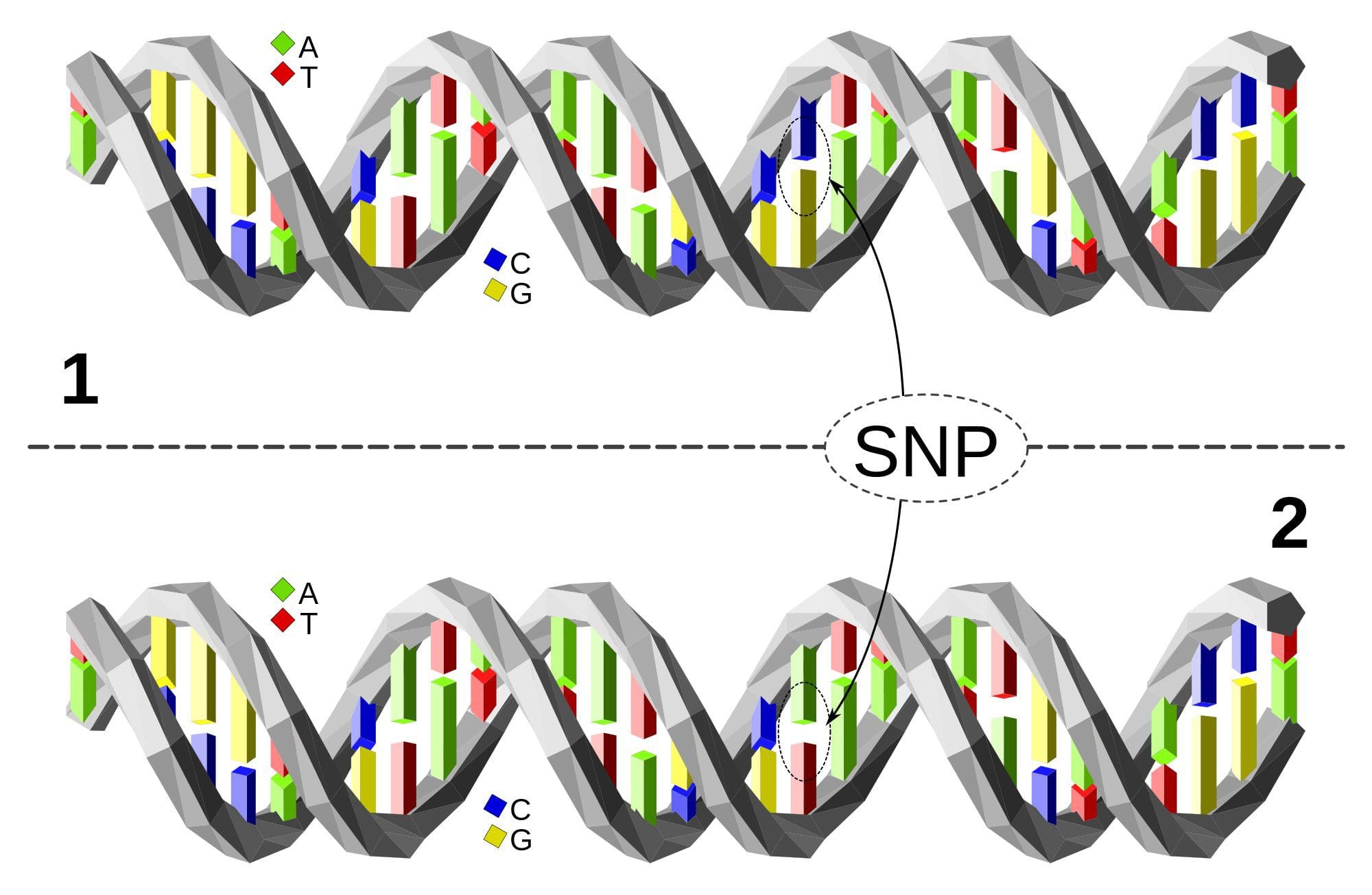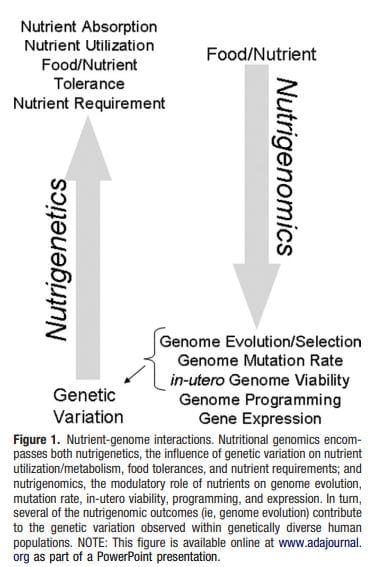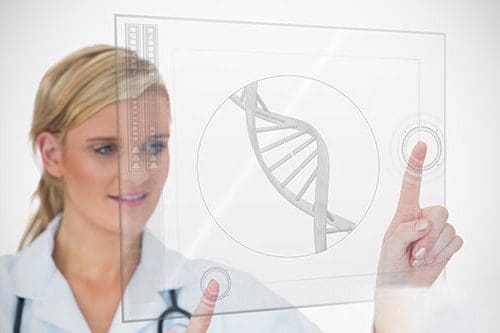How does epigenetic and personalized nutrition contribute to optimal health?
Most of us know about unhealthy food how it affects our bodies. They
- Slow Down Metabolism
- Add Weight
- Clog and harden arteries etc.

But now there are foods and food elements that can help us in a way and comes from a place we might not of thought of, and that is our DNA.
Nutriepigenomics examines connections between diet and biomarkers that can be attached or removed from our DNA. This turns our genes on or off.
New studies are showing that certain foods or supplements can adjust the expression of our genes, which can influence our health.
Nutritional genomics is revolutionizing both clinical and public health nutritional practices:
Diet, exercise, and environmental exposure are all elements that have shown a role in switching genes on and off through epigenetics. Adjusting lifestyle factors can control the potential to reduce disease and have a positive impact on our health.
Health professionals from all over are beginning to incorporate epigenetics into their practice aiming to provide more specialized and individualized treatment plans.

�Layering information such as diet, lifestyle, environmental factors, family history, symptoms, and diagnoses along with epigenetics can help guide someone to a state of optimized health,� said Kristy Hall, MS, RNCP, ROHP, a board certified functional nutritionist and founder of Living Well Nutrition who uses epigenetic testing, nutrition counseling, and a multifaceted approach to better provide for her clients.
May 15, 2018, Bailey Kirkpatrick Diet, Diseases & Disorders, Environment, News & Reviews

Registered dietitians have the opportunity to make genetically driven dietary recommendations that can improve human health.
Nutrition is one of the primary environmental factors that determine our health. Chronic diseases include:
- Type 2 diabetes
- Metabolic syndrome
- Cardiovascular disease
- Neurological disease
- Various Cancers
- Are initiated or accelerated by nutrient/food
This field of nutritional research can be referred to as Nutritional Genomics.
Single nucleotide polymorphisms (SNPs) are single base-pair differences in DNA. They represent a primary form of human genetic variation.

The upper DNA molecule differs from the lower DNA molecule at a single base-pair location (a C/A polymorphism)
Nutritional genetics or nutrigenetics involves the identification, classification, and characterization of human genetic variation that modifies nutrient metabolism/ utilization and food tolerances Fig1.

Application: Genetic & Epigenetics
Nutrients, for example, pharmaceuticals, are powerful effectors of genome expression and stability, and these gene-nutrient interactions can be optimized for disease prevention.

Individualized Nutrition
The promise of nutritional engineering for optimal health through diet is still ongoing, but the public is holding positive expectations, as is evidenced by the use of dietary supplements.
Scientific research is showing that nutrients in different foods and supplements we eat may be able to adjust or reverse heritable changes. This evidence can be used in making better lifestyle choices.
Blueberries are incredibly high in antioxidants and it�s thought that this �superfood� can epigenetically reduce DNA damage, thereby protecting humans against cancer and possibly even slow aging. Blueberry juice and vitamin C have been shown to be potential methylation inhibitors for the MTHFR gene and the DNMT1 gene in humans.
Kim, M., Na, H., Kasai, H., Kawai, K., Li, Y.-S., & Yang, M. (2017). Comparison of Blueberry (Vaccinium spp.) and Vitamin C via Antioxidative and Epigenetic Effects in Human. Journal of Cancer Prevention, 22(3), 174�181.

Learning about what we eat and what it does to our bodies, especially potential epigenetic impact, is just one step closer to optimal health.
General Disclaimer, Licenses and Board Certifications *
Professional Scope of Practice *
The information herein on "Genetic-Epigenetic Nutrition And Our Health | El Paso, TX." is not intended to replace a one-on-one relationship with a qualified health care professional or licensed physician and is not medical advice. We encourage you to make healthcare decisions based on your research and partnership with a qualified healthcare professional.
Blog Information & Scope Discussions
Welcome to El Paso's Premier Wellness and Injury Care Clinic & Wellness Blog, where Dr. Alex Jimenez, DC, FNP-C, a Multi-State board-certified Family Practice Nurse Practitioner (FNP-BC) and Chiropractor (DC), presents insights on how our multidisciplinary team is dedicated to holistic healing and personalized care. Our practice aligns with evidence-based treatment protocols inspired by integrative medicine principles, similar to those on this site and on our family practice-based chiromed.com site, focusing on naturally restoring health for patients of all ages.
Our areas of multidisciplinary practice include Wellness & Nutrition, Chronic Pain, Personal Injury, Auto Accident Care, Work Injuries, Back Injury, Low Back Pain, Neck Pain, Migraine Headaches, Sports Injuries, Severe Sciatica, Scoliosis, Complex Herniated Discs, Fibromyalgia, Complex Injuries, Stress Management, Functional Medicine Treatments, and in-scope care protocols.
Our information scope is multidisciplinary, focusing on musculoskeletal and physical medicine, wellness, contributing etiological viscerosomatic disturbances within clinical presentations, associated somato-visceral reflex clinical dynamics, subluxation complexes, sensitive health issues, and functional medicine articles, topics, and discussions.
We provide and present clinical collaboration with specialists from various disciplines. Each specialist is governed by their professional scope of practice and their jurisdiction of licensure. We use functional health & wellness protocols to treat and support care for musculoskeletal injuries or disorders.
Our videos, posts, topics, and insights address clinical matters and issues that are directly or indirectly related to our clinical scope of practice.
Our office has made a reasonable effort to provide supportive citations and has identified relevant research studies that support our posts. We provide copies of supporting research studies upon request to regulatory boards and the public.
We understand that we cover matters that require an additional explanation of how they may assist in a particular care plan or treatment protocol; therefore, to discuss the subject matter above further, please feel free to ask Dr. Alex Jimenez, DC, APRN, FNP-BC, or contact us at 915-850-0900.
We are here to help you and your family.
Blessings
Dr. Alex Jimenez, DC, MSACP, APRN, FNP-BC*, CCST, IFMCP, CFMP, ATN
email: [email protected]
Multidisciplinary Licensing & Board Certifications:
Licensed as a Doctor of Chiropractic (DC) in Texas & New Mexico*
Texas DC License #: TX5807, Verified: TX5807
New Mexico DC License #: NM-DC2182, Verified: NM-DC2182
Multi-State Advanced Practice Registered Nurse (APRN*) in Texas & Multi-States
Multi-state Compact APRN License by Endorsement (42 States)
Texas APRN License #: 1191402, Verified: 1191402 *
Florida APRN License #: 11043890, Verified: APRN11043890 *
Colorado License #: C-APN.0105610-C-NP, Verified: C-APN.0105610-C-NP
New York License #: N25929, Verified N25929
License Verification Link: Nursys License Verifier
* Prescriptive Authority Authorized
ANCC FNP-BC: Board Certified Nurse Practitioner*
Compact Status: Multi-State License: Authorized to Practice in 40 States*
Graduate with Honors: ICHS: MSN-FNP (Family Nurse Practitioner Program)
Degree Granted. Master's in Family Practice MSN Diploma (Cum Laude)
Dr. Alex Jimenez, DC, APRN, FNP-BC*, CFMP, IFMCP, ATN, CCST
My Digital Business Card
Licenses and Board Certifications:
DC: Doctor of Chiropractic
APRNP: Advanced Practice Registered Nurse
FNP-BC: Family Practice Specialization (Multi-State Board Certified)
RN: Registered Nurse (Multi-State Compact License)
CFMP: Certified Functional Medicine Provider
MSN-FNP: Master of Science in Family Practice Medicine
MSACP: Master of Science in Advanced Clinical Practice
IFMCP: Institute of Functional Medicine
CCST: Certified Chiropractic Spinal Trauma
ATN: Advanced Translational Neutrogenomics
Memberships & Associations:
TCA: Texas Chiropractic Association: Member ID: 104311
AANP: American Association of Nurse Practitioners: Member ID: 2198960
ANA: American Nurse Association: Member ID: 06458222 (District TX01)
TNA: Texas Nurse Association: Member ID: 06458222
NPI: 1205907805
| Primary Taxonomy | Selected Taxonomy | State | License Number |
|---|---|---|---|
| No | 111N00000X - Chiropractor | NM | DC2182 |
| Yes | 111N00000X - Chiropractor | TX | DC5807 |
| Yes | 363LF0000X - Nurse Practitioner - Family | TX | 1191402 |
| Yes | 363LF0000X - Nurse Practitioner - Family | FL | 11043890 |
| Yes | 363LF0000X - Nurse Practitioner - Family | CO | C-APN.0105610-C-NP |
| Yes | 363LF0000X - Nurse Practitioner - Family | NY | N25929 |
Dr. Alex Jimenez, DC, APRN, FNP-BC*, CFMP, IFMCP, ATN, CCST
My Digital Business Card








